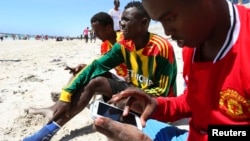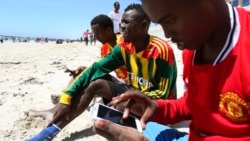Digital communication and the technologies that enable it allow people of every nationality to connect, cooperate and prosper as never before. A mother in rural Africa can sell crafts in Latin America. Students in the Middle East and Australia can learn together through videoconferencing. Medical researchers in the United States can work in real time with those in Europe to develop new life-saving drugs and therapies. Almost a third of the world’s population uses the Internet and countless more are touched by it in their daily lives.
For these technologies to continue to empower individuals, enrich societies and foster the innovation and growth that are essential to economies in the 21st century, digital networks must be reliable, open, and secure, resilient to criminal or malicious political disruption. Because actions taken in cyberspace have consequences for our lives in the physical world, precautions and policies must be adopted to prevent the risks of logging on to a computer or mobile device from outweighing its benefits. Our nations need to enact laws that strike a balance between our citizens’ privacy on one hand, with the tools needed by our law enforcement authorities to protect us from cyber-criminals who victimize all of us.
Among the areas of the world where the use of the Internet and mobile phones is growing fastest is Sub-Saharan Africa, where nations are grappling with multiple threats ranging from drug trafficking and other transnational crimes to terrorist groups like Boko Haram in Nigeria and Somalia’s al-Shabaab.
Because of our shared security and other interests, the United States this month conducted a workshop attended by representatives from 16 African nations to discuss cybersecurity and share information on protecting it.
The workshop sessions, held in Gaborone, Botswana, focused on ways to combat cybercrime, build public awareness of threats, promote mobile phone security, Internet freedom, Internet access and affordability, and development of national readiness teams to quickly respond to hacking, network attacks and other computer emergencies.
In addition to gaining a better understanding of the emerging threats to digital communication and commerce, participants learned ways to approach cybersecurity from a regional perspective. The Internet knows no borders. Working with other nations facing the same challenges will make each stronger to deal with them.
Much is at stake, and the United States is fully committed to working with it partners in Sub-Saharan Africa so they may fully realize the benefits of new and emerging communications technologies.
For these technologies to continue to empower individuals, enrich societies and foster the innovation and growth that are essential to economies in the 21st century, digital networks must be reliable, open, and secure, resilient to criminal or malicious political disruption. Because actions taken in cyberspace have consequences for our lives in the physical world, precautions and policies must be adopted to prevent the risks of logging on to a computer or mobile device from outweighing its benefits. Our nations need to enact laws that strike a balance between our citizens’ privacy on one hand, with the tools needed by our law enforcement authorities to protect us from cyber-criminals who victimize all of us.
Among the areas of the world where the use of the Internet and mobile phones is growing fastest is Sub-Saharan Africa, where nations are grappling with multiple threats ranging from drug trafficking and other transnational crimes to terrorist groups like Boko Haram in Nigeria and Somalia’s al-Shabaab.
Because of our shared security and other interests, the United States this month conducted a workshop attended by representatives from 16 African nations to discuss cybersecurity and share information on protecting it.
The workshop sessions, held in Gaborone, Botswana, focused on ways to combat cybercrime, build public awareness of threats, promote mobile phone security, Internet freedom, Internet access and affordability, and development of national readiness teams to quickly respond to hacking, network attacks and other computer emergencies.
In addition to gaining a better understanding of the emerging threats to digital communication and commerce, participants learned ways to approach cybersecurity from a regional perspective. The Internet knows no borders. Working with other nations facing the same challenges will make each stronger to deal with them.
Much is at stake, and the United States is fully committed to working with it partners in Sub-Saharan Africa so they may fully realize the benefits of new and emerging communications technologies.






